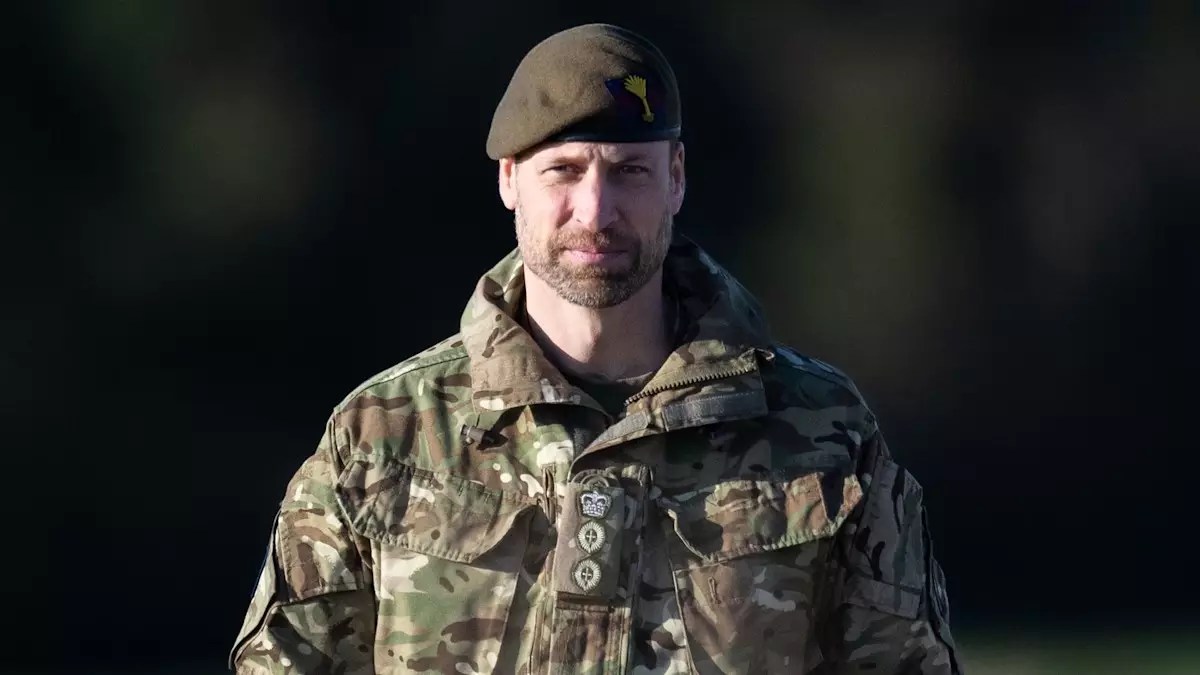Prince William, the Prince of Wales, showcased a profound commitment to the British military during a recent engagement on Salisbury Plain, where he joined the Welsh Guards for a day of military training. This appearance on a Tuesday, dressed in camouflage as he participated in live-firing exercises, highlights not just his role as the newly appointed colonel of the regiment, but his deep-seated compassion for the armed forces. Engaging with the soldiers of the 1st Battalion, William’s presence signifies a blend of royal duty and empathy, particularly as the regiment steels itself for an upcoming shift from ceremonial obligations to combat readiness starting January 2025.
The Welsh Guards, having been immersed in ceremonial events over the past two years—such as the state funeral of Queen Elizabeth II and King Charles III’s inaugural Trooping the Colour—are now gearing up to embrace their fundamental role as soldiers. This transition to “green soldiering” represents not only a return to their combat roots but also the necessity to restore their specialized military capabilities. William’s visit came at a pivotal time, underscoring the vital importance of operational readiness in contemporary military conflicts, especially given the lessons learned from ongoing global events, like the war in Ukraine.
During his visit, the prince took the time to engage directly with the soldiers, asking about their training experiences and acknowledging the demanding nature of their recent roles. His inquiry—”Is it good to be back out?”—reflects an understanding of the camaraderie and the psychological relief that comes from stepping away from ceremonial duties to engage in more traditional military training. The interaction with the sniper team not only allowed him to appreciate their skill set but also served to uplift the troops’ spirits, reinforcing a sense of belonging and pride in their service. The platoon commander aptly described the royal visit as “very special,” emphasizing how meaningful such gestures can be for service members who have recently found themselves away from the frontline duties for extended periods.
William also demonstrated curiosity about modern warfare technologies, including the use of drones—critical assets in today’s combat scenarios. Inquire about their training, he sampled a drone flight, recognizing the evolving nature of military operations. The contemporary battlefield now demands proficiency with such technology, which has proven instrumental in conflicts, especially in Ukraine, raising important questions about traditional warfare paradigms versus modern technological strategies.
Notably, the young royal maintained his bearded appearance during this military engagement, reflecting a contemporary image of military personnel. The British Army has allowed soldiers to grow facial hair, a shift highlighting changing norms within military culture. Social media erupted with positive reactions, with royal enthusiasts appreciating this fresh look for Prince William, citing comments like “The handsome Prince” and noting a new era for him—essentially tapping into a modernized, relatable image of the royals that resonates with younger audiences.
As the Prince of Wales continues to navigate his dual role, recent announcements about his upcoming engagements with the Emir of Qatar highlight the balance he must maintain between royal duties at home and building international relations. Such responsibilities are pivotal not only for the monarchy but also for fostering goodwill and understanding between nations. The upcoming state visit with Princess Kate to welcome the Qatari royal family illustrates the ongoing engagement with international diplomacy, showcasing the multifaceted nature of modern royal duties.
Prince William’s visit to the Welsh Guards was more than a casual day of military training. It was a reaffirmation of his dedication to the armed forces, a morale boost to the troops, and a bridge between contemporary royal responsibilities and historical military traditions. As he forges ahead in his royal role, both on and off the field, it remains clear that William is keenly aware of the weight he carries and the expectations placed upon him as he steps into the future of the monarchy.







Leave a Reply